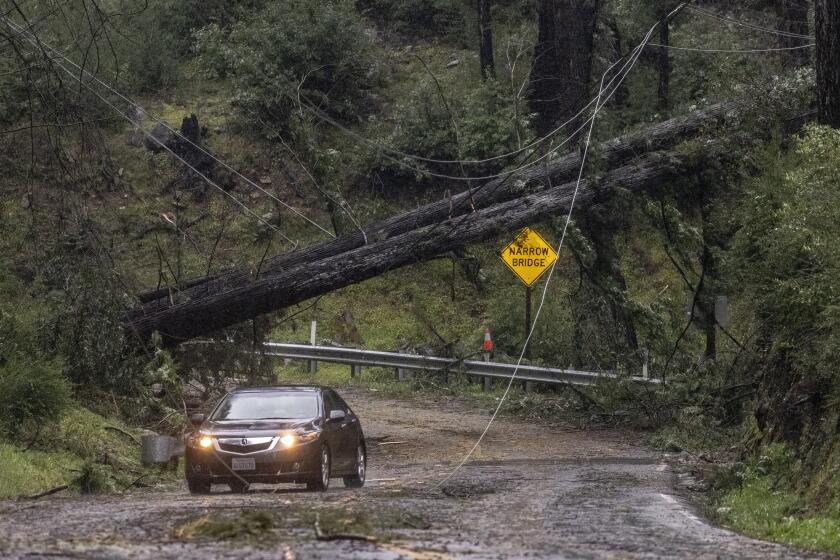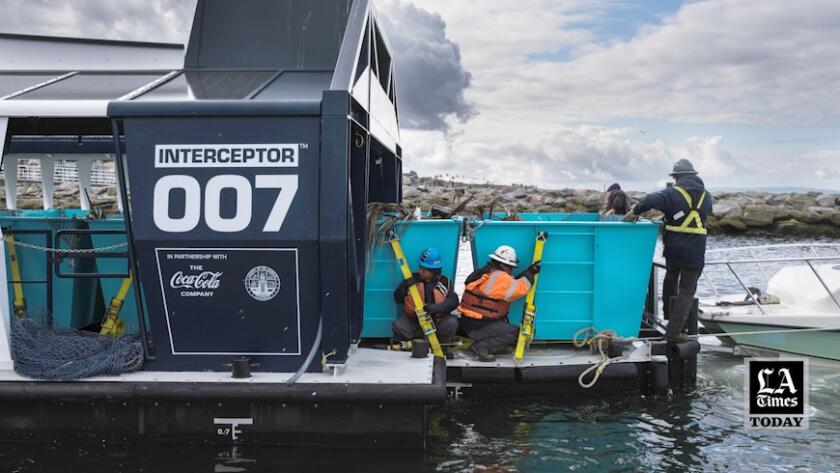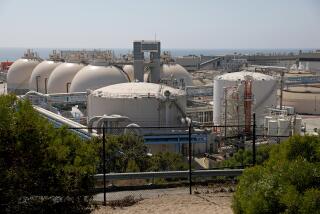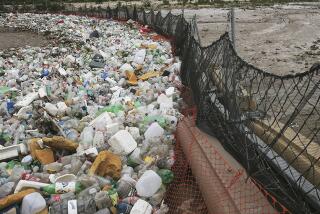Trash interceptor weathers the storms, sparing Pacific from thousands of pounds of garbage
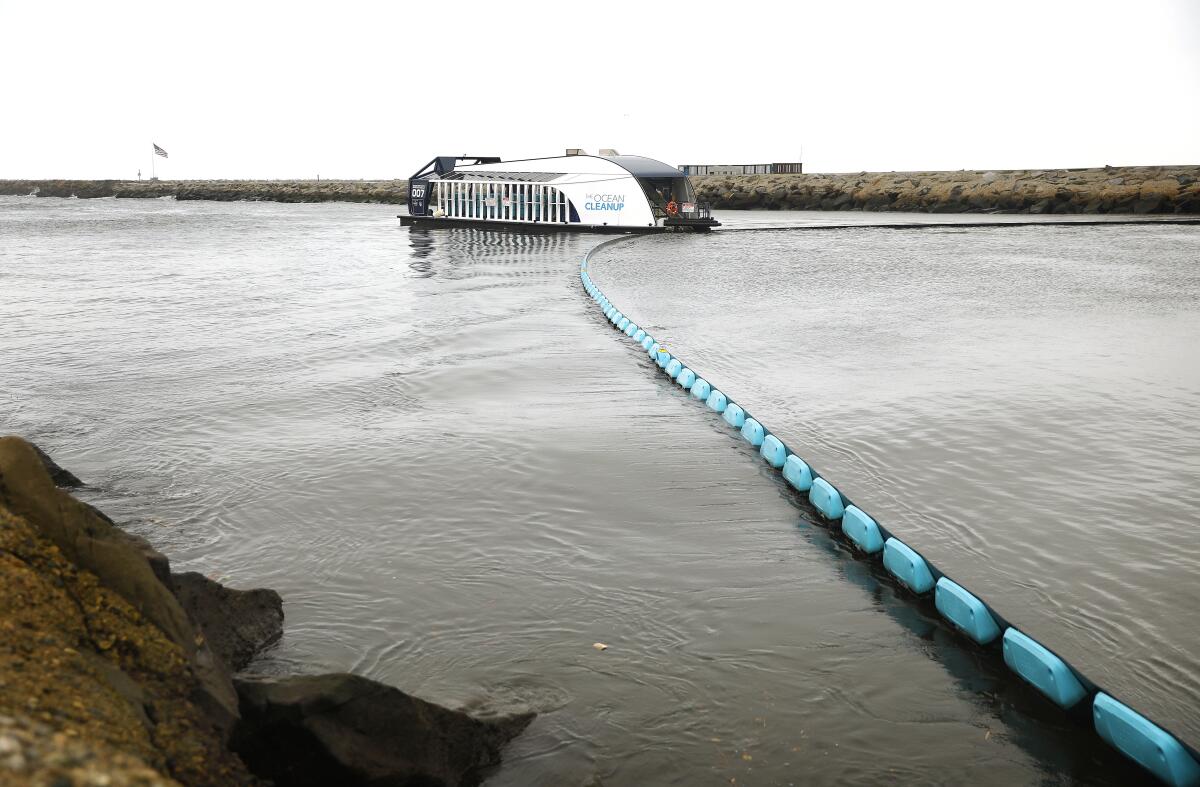
After back-to-back January atmospheric rivers dumped rain on Los Angeles, the Ballona Creek Trash Interceptor 007 was in rough shape.
Debris swept downstream by high, turbulent water had damaged one of the barrier system’s two nets at the mouth of Ballona Creek near Playa del Rey, allowing garbage to flow out to the Pacific until crews could connect a “temporary floating barrier” in late January to guide trash into the collector, a county website said.
Interceptor 007 has fared far better during the storms that have slammed Southern California in recent weeks, catching thousands of pounds of trash even after an older boom system failed upstream.
Since it was installed in October, it has collected more than 60 tons — some 121,500 pounds — of trash that would have otherwise flowed out to the Santa Monica Bay. About 35,000 pounds of that total has been caught since January’s atmospheric river storms.
The solar-powered trash interceptor, one of a handful developed by the Ocean Cleanup, is the result of a partnership between the Dutch nonprofit and Los Angeles County, becoming the first such system to operate in the U.S. It collects floating debris a few hundred yards before it would be released from Ballona Creek, and crews can then send the garbage to a landfill.
After January’s storm damage to the net, a permanent fix was made Feb. 9 as storms continued to push water down the creek and trash into the machine. Since then, it’s been “operating great,” said Kerjon Lee, a spokesperson for the L.A. County Public Works Department.
A month later, on March 10, “heavy rain and turbulent water flows” caused the failure of a trash-collecting boom about a mile upstream of Interceptor 007 at Lincoln Boulevard, according to the county.
In the past, Lee said, “a slug of material” would be carried out to sea after some major storms because too much pressure from built-up trash would compromise the Lincoln trash boom, which has been in place for years and requires crews with backhoes, shovels and other tools to collect trash that accumulates there.
“We’re used to seeing some 30 to 60 tons of trash getting through” and out to the ocean, Lee said, but this year Interceptor 007 has stepped up.
One person was killed in the storm that brought widespread rain, gusts that knocked glass out of skyscrapers and left tens of thousands without power.
When the Lincoln trash boom failed this month, Lee said, all the debris that had accumulated there was collected downstream by the interceptor, which is designed to work mostly autonomously. A March 12 offload of some 10,900 pounds of trash from the interceptor reflected the additional material.
“We’re so pleased with its progress over the first year,” Lee said.
The Ocean Cleanup began with a viral TedX talk and a subsequent crowdfunding campaign that raised millions in donations.
Since 2019, the project has deployed machines in an attempt to clean up the Great Pacific Garbage Patch, situated between Hawaii and California, and to stop trash carried by rivers from entering the oceans.
Its goal is to remove 90% of all floating plastic in the world’s oceans by 2040.
With more tempests on the horizon, the Ballona Creek trash collector’s first storm season is not yet over. But as even more rain falls on Los Angeles in an already wet year, it seems that Interceptor 007 will be up to the mission.
In parts of California’s Central Valley, farmlands are being used to soak up storm water and replenish depleted groundwater.
Watch L.A. Times Today at 7 p.m. on Spectrum News 1 on Channel 1 or live stream on the Spectrum News App. Palos Verdes Peninsula and Orange County viewers can watch on Cox Systems on channel 99.
More to Read
Sign up for Essential California
The most important California stories and recommendations in your inbox every morning.
You may occasionally receive promotional content from the Los Angeles Times.

